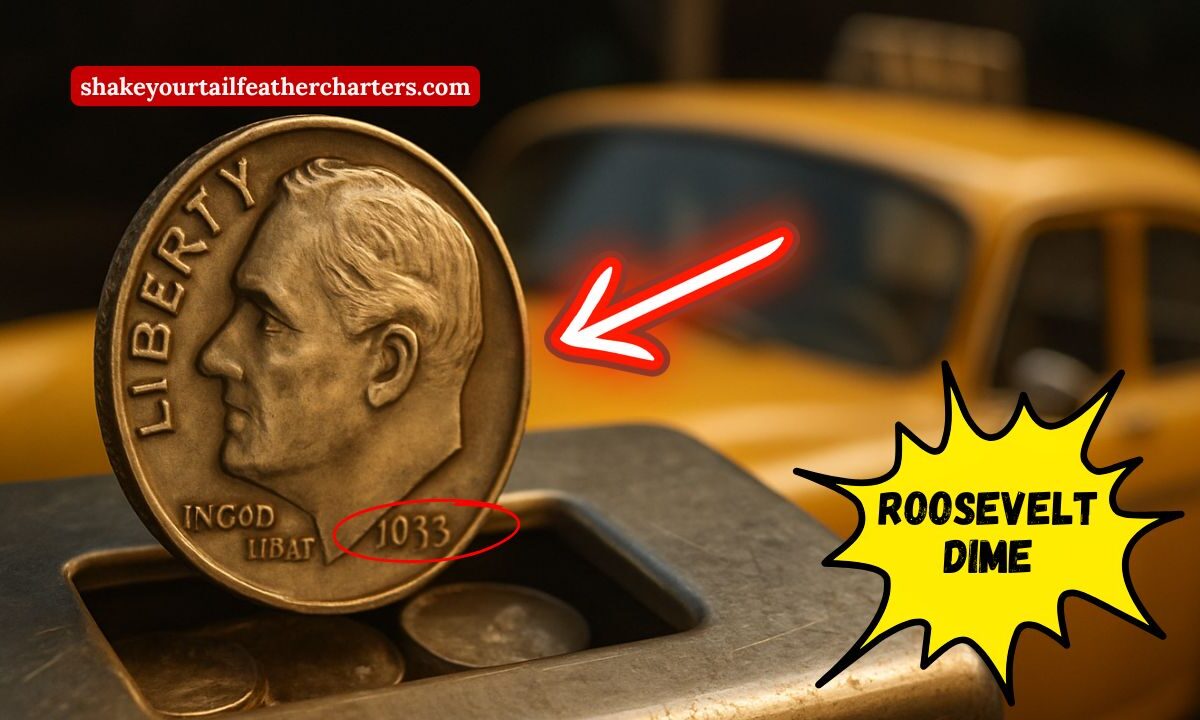An extraordinary find recently made headlines when a Roosevelt dime, minted decades ago, was discovered still in circulation inside a taxi fare box—an astonishing testament to the longevity of everyday currency.
Though this coin might not be one of the rare mint-error varieties, its survival through countless hands over the years makes it a fascinating story for collectors and casual observers alike.
A Coin with a Legacy
The Roosevelt dime has been a mainstay of American currency since 1946, introduced to honor President Franklin D. Roosevelt shortly after his death. Its design, featuring FDR’s portrait and symbols of liberty, peace, and strength, has remained largely unchanged for nearly eight decades.
| Attribute | Details |
|---|---|
| First Issued | 1946 |
| Design Features | Roosevelt obverse; torch, olive & oak reverse |
| Minting Range | 1946–present; silver (pre-1965), clad (post-1965) |
| Mint Marks | P, D, S, (rarely) W; positioning changed over time |
| Known Rare Varieties | 1975 “No S” proof dimes (only two known examples) |
The Discovery: A Dime’s Journey
Recently, a seemingly ordinary Roosevelt dime was found lodged in a taxi’s fare box after decades of circulation.
Though not a collector’s rarity in the sense of mint errors or precious metal composition, the dime’s continued use is remarkable—not only for its physical endurance, but for the silent journey it has taken through everyday life.
While most Roosevelt dimes are common, certain varieties are prized by collectors—like those with silver composition (pre-1965) or error coins such as the infamous 1975 “No S” proof dime, of which only two are known to exist and one recently fetched over $500,000 at auction.
Why This Story Captivates
Even everyday change can be a portal to history. A dime that has passed through cafés, stores, vending machines, and taxi meters represents more than its ten-cent face value—it’s a hand-to-hand traveler across time, connecting generations.
For collectors and numismatists, such findings are subtle reminders that history lurks in plain sight—and that even routine currency can spark intrigue, whether rare or not.
Rare Varieties That Command Attention
Although the taxi-found dime may not command big money, rare Roosevelt dimes can be extraordinarily valuable. The 1975 “No S” proof dime, missing the “S” mint mark from San Francisco, is especially prized—one example sold for over $500,000 at auction, while the other known specimen previously fetched around $456,000.
These coins weren’t designed for circulation; they were part of special proof sets distributed in the 1970s. Their errors make them ultra-rare treasures, sought after by serious collectors.
Still in Circulation: What It Means
Most Roosevelt dimes struck in vast numbers are worth just their face value—especially clad versions post-1965. Yet, this find reminds us that coins can remain active in commerce for decades. Unlike stamps or banknotes, coins are remarkably durable—an everyday object with subtle stories embedded.
A dime pulled from a taxi meter is more than pocket change—it’s a symbol of continuity, resilience, and the hidden tales behind our daily transactions.
The discovery of a decades-old Roosevelt dime in a taxi fare box is more than a quirky numismatic anecdote—it’s a reminder of how everyday objects quietly weave through history.
While not every coin found in circulation holds monetary value, each carries stories of the past and underscores the hidden continuity in our daily lives.
Whether rare or routine, every piece of change has a journey—and this one just happened to stop in a taxi.
FAQs
Rare value comes from pre-1965 silver content and specific mint errors—like missing mint marks or unusual minting processes. Among them, the 1975 “No S” proof dime is among the most prized.
Not extremely common—but not unheard of. People still occasionally come across silver dimes, wheat pennies, or other older coins in everyday change.
Unless the coin has an identifiable rare feature or error, its value remains its face amount. The fascination lies in its long journey, not monetary worth.

